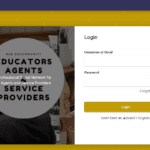
Universities must make sure that access to resources and investment in technology must work

Due to COVID-19 students worldwide have been affected by higher education institution closures which have brought a change in how they learn. For some, the difference has been tremendous as they were used to receiving their learning in a traditional face-to-face manner. Unquestionably, it is not merely students who are affected. University academics and administrators have also had to face some challenges.
As a result in decrease of international student income, many institutions have seen staff redundancies, reduced support for academic research and a re-allocation of lesser resources to providing structural support for alternate ways to deliver learning to students. The institutions have had to move quickly to adapt to the new circumstances, and it has become apparent that some institutions were more prepared for or able to adapt to the forced changes to their learning environment than others.
Usually, it can take months and more for universities to adopt new ideas, prepare new policies and procedures. This time they have no choice but to become nimbler and address quickly the challenges brought by the pandemic and make a transition to online teaching and learning.
Technology as a means of bringing information and learning to various groups, has been used for many years now, and it is not a novelty. The teaching industry and businesses have employed online learning for training, retraining and projects for a long time but the technology was not always used effectively. As in any learning online or face to face the crucial matter is to make sure learners receive a quality learning experience.
To be able to deliver quality online education by qualified instructors supported by well-functioning and resourced technology, systems and processes take time and resources. It needs strong leadership and a willingness to listen to all the stakeholders, gather research, explore various options, share ideas and learn from it and work (rather than compete) with each other. Collaboration and support networks are vital.
To deliver online well, tutors and teachers who build online courses must be fittingly qualified and supported professionally. They need to understand how to prepare an engaging online pedagogical content and how to best support the online learning experience.
Learners value being presented with a customized learning journey that provides them with a selection of content and resources to choose from.
Personalised learning is highly valued by learners and takes into account prior knowledge and experience and concentration on exceptional knowledge, understandings and skills gaps. The emphasis must be on meaningful, active learning, not memorisation of worthless facts.
Learners must have access to support throughout their learning journey, from admission to graduation. They need to be able to easily access information about who to contact if they have a technical problem, how to contact the instructor, understand the assessment and examination procedures and so forth.
Instructors need to engage actively with students, get to know them and maintain contact throughout their study, as well as incorporate methods to motivate and encourage them and maintain the contact. Importantly, universities must make sure that access to resources and investment in technology work.
Universities will gradually reopen for on-campus classes when the situation allows. The blended learning model, which is becoming more popular with many university instructors and learners who approve of combining online learning with that which takes place in class, may become one of the more prevalent delivery methods. Regardless of what model is adopted by the institution, the change to online delivery will become permanent and need to lead to an improved higher education system.























